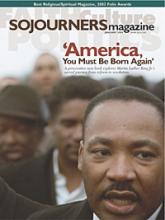Corazón Endonela lives in Makati, Philippines, with her husband and three children. The road to her home winds past streams of raw sewage. She used to work in a slipper-making factory, earning about $117 a monthnot enough to support her family. She wanted to go into business for herself, manufacturing and selling her own slippers with help from neighbors and family members.
Endonela had persistence, creativity, initiative, and business sensebut no start-up capital. Traditional banks would have considered her unreliable because of her lack of sufficient income or collateral. Local loan sharks would have lent her money, but at steep interest rates.
Endonela received a loan of less than $100 from a local microfinance institution, which enabled her to start a self-sufficient slipper business and generate a decent income. The institutioncalled the Tulay Sa Pag-unlad Inc. Development Corporationwas able to provide funds to Endonela because of money lent, in part, from churches and individuals in the United States. That money came through an organization called Oikocredit.
Oikocredit provides hundreds of such loans to women and men from 67 countries in Asia, Africa, Latin America, and Eastern Europe. Through the shared investments of churches, individuals, and community organizations in wealthy nations such as the United States, cooperatives like the one in the Philippines are able to empower and improve the lives of the formerly "unbankable"the poorest of the worlds poor.
Read the Full Article
